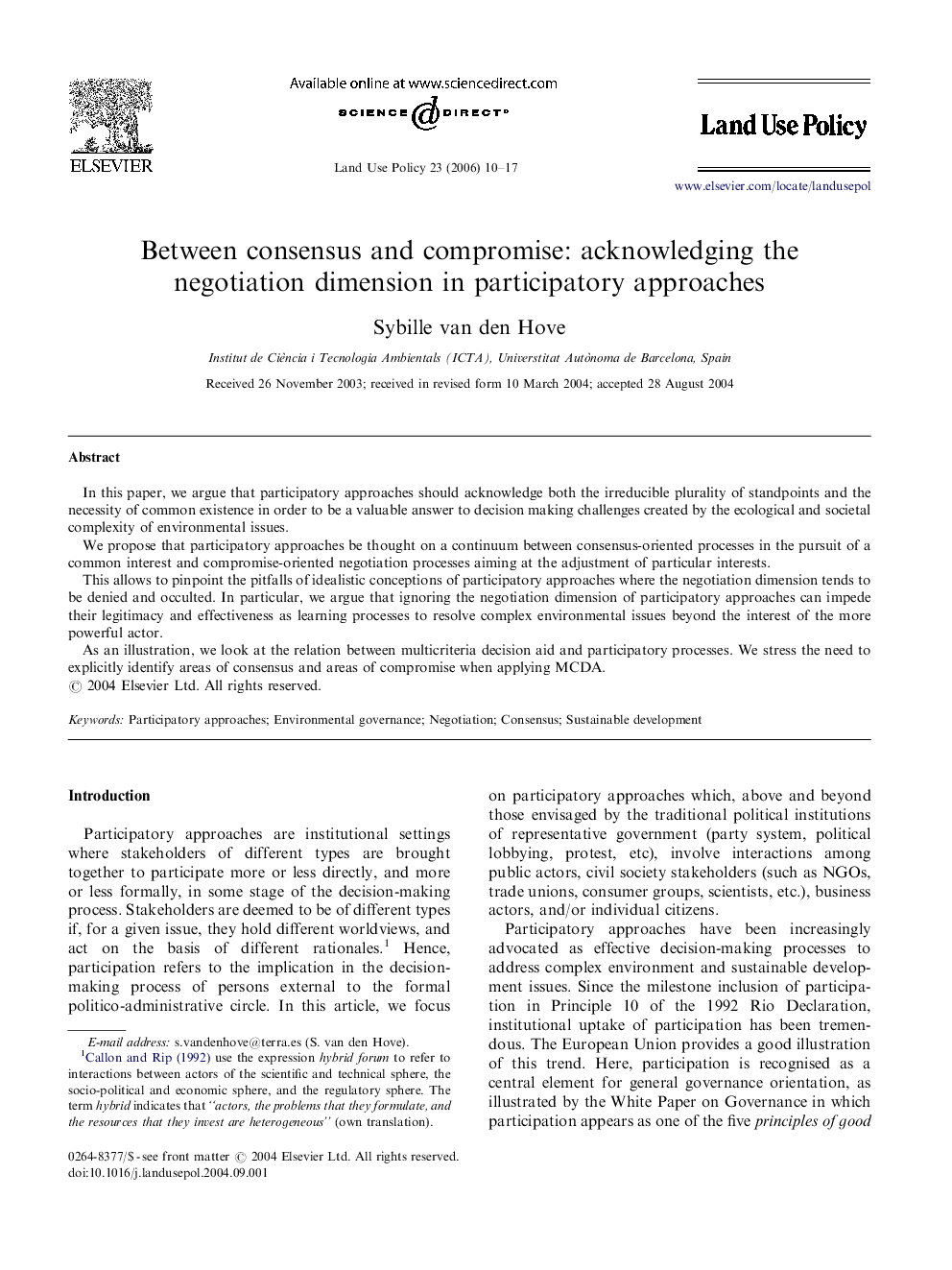| Article ID | Journal | Published Year | Pages | File Type |
|---|---|---|---|---|
| 93897 | Land Use Policy | 2006 | 8 Pages |
In this paper, we argue that participatory approaches should acknowledge both the irreducible plurality of standpoints and the necessity of common existence in order to be a valuable answer to decision making challenges created by the ecological and societal complexity of environmental issues.We propose that participatory approaches be thought on a continuum between consensus-oriented processes in the pursuit of a common interest and compromise-oriented negotiation processes aiming at the adjustment of particular interests.This allows to pinpoint the pitfalls of idealistic conceptions of participatory approaches where the negotiation dimension tends to be denied and occulted. In particular, we argue that ignoring the negotiation dimension of participatory approaches can impede their legitimacy and effectiveness as learning processes to resolve complex environmental issues beyond the interest of the more powerful actor.As an illustration, we look at the relation between multicriteria decision aid and participatory processes. We stress the need to explicitly identify areas of consensus and areas of compromise when applying MCDA.
